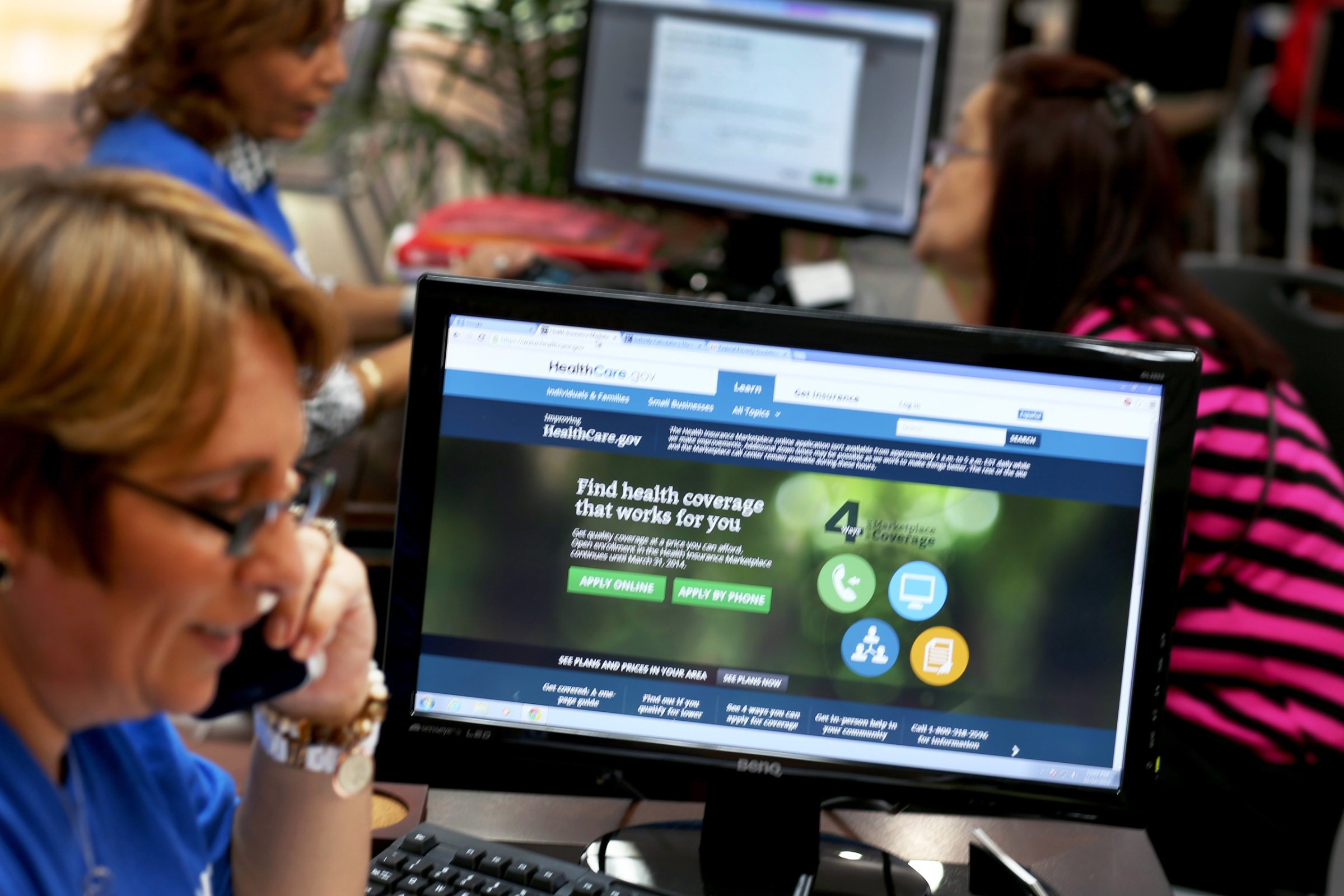
Health insurance companies make money by predicting the future. To set rates, quants with complex computer algorithms try to estimate not just the health of the people who will sign up for their plans but also the chances that those people will later get sick or injured or otherwise run up big medical bills. If they do their math right, the insurers make money. If they miscalculate, you get something like the crisis roiling the Obamacare marketplace today.
The insurance giant Aetna announced in mid-August that it has lost roughly $430 million so far on the federal health care exchanges, the marketplaces where uninsured individuals and small businesses can find coverage. That loss might have been sustained, it argued in a July letter, if the Justice Department had approved an upcoming corporate merger. But when the merger hit regulatory roadblocks, the company announced it would sharply reduce its participation in the exchanges next year. Aetna’s not alone. Humana and Blue Cross Blue Shield have also cited losses when announcing pullbacks from the exchanges. UnitedHealthcare, which estimates it has hemorrhaged $1 billion since 2015, says it plans to leave all but “a handful” of exchanges next year.
“I think we’re seeing a fish-or-cut-bait moment for insurers,” says Edmund Haislmaier, a health-policy expert at the conservative Heritage Foundation. “They now have a couple years of data, and they’re seeing that the market is not particularly good for them.” Some experts have argued that the exodus presages Obamacare’s imminent collapse.
But like the algorithms that make the insurance business hum, the real story is more complicated. When large, national insurers pull out of markets, smaller, regional insurance companies can be expected, at least in the short term, to take up the slack. So while Aetna’s departure from 11 of the 15 public exchanges where it currently operates will lead to fewer choices for some customers–particularly in Arizona and the Carolinas–many others won’t see much of a difference. Since the exchanges were launched in January 2014, more than 11 million Americans have been insured through the marketplaces.
That’s not to say Obamacare doesn’t face strong headwinds. After setting premiums too low three years ago, many insurers have been consistently losing money on the individual exchanges, where the average consumer is sicker–and therefore more costly to cover–than the general population. If younger or healthier people sign up during the next enrollment period, beginning Nov. 1, the market will stabilize. But the future is hazy. “If the market continues to grow, insurers will be more interested in it,” says Gary Claxton, a vice president at the Kaiser Family Foundation. “If it doesn’t, their skepticism might increase. But it’s too early to tell.”
Insurance companies also have to grapple with predicting the political climate. The Affordable Care Act was supposed to help mitigate insurers’ losses, but none of the law’s three “risk-sharing” provisions have worked as planned. In 2014, for example, congressional Republicans derailed funding for the law’s risk corridors, which were designed to allow the government to cover some insurers’ losses through 2016. Other provisions need to be tweaked in order to work, says Timothy Jost, a health care expert at Washington and Lee University School of Law. That sort of legislative massaging is unlikely to come from a Congress that has voted to repeal all or some of the bill more than five dozen times.
All of this has left prognosticators stumped. While the public exchanges are challenging at the moment, most big insurers, Aetna included, have positioned themselves to re-enter the market as early as 2018. “There are going to be people who say Aetna leaving is proof that Obamacare is a disaster, but I think it’s proof that it’s difficult to create an insurance market,” says Katherine Hempstead of the Robert Wood Johnson Foundation. “These things take time, and I believe time is on our side.”
More Must-Reads from TIME
- Cybersecurity Experts Are Sounding the Alarm on DOGE
- Meet the 2025 Women of the Year
- The Harsh Truth About Disability Inclusion
- Why Do More Young Adults Have Cancer?
- Colman Domingo Leads With Radical Love
- How to Get Better at Doing Things Alone
- Michelle Zauner Stares Down the Darkness
Write to Haley Sweetland Edwards at haley.edwards@time.com